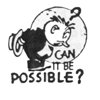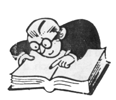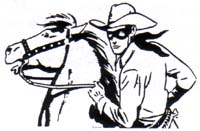|

This story was published in Radio Recall, the journal of the Metropolitan Washington Old-Time Radio Club, published six times per year.
Click here to return to the index of selected articles.
|
|
  ASK THE EXPERT... ASK THE EXPERT...
Our expert in this issue is the well-known OTR researcher and historian, Elizabeth McLeod.
(From Radio Recall, April 2003)
QUESTION: Can you explain the history of Mutual Broadcasting in the Motor City? I , thought WXYZ was a founding member of the Mutual Network, formed in part to carry The Lone Ranger. Yet by the time I began listening to that show in 1939 or 1940, it was on the NBC Blue affiliate (WNBC) in Hartford, CT, and at some point, a Canadian 10,000-watter in Windsor was carrying Mutual programs---without The Lone Ranger.
 ANSWER: WXYZ dropped out of Mutual after less than a year, in order to become a basic NBC Blue affiliate, and was replaced as Mutual's Detroit outlet by CKLW in Windsor. Prior contractual arrangements kept The Lone Ranger on certain Mutual stations until 1942, when it moved to the Blue. However, beginning in February 1938, the program began to be distributed by syndicated recordings to stations in markets where the live program was not being carried, and it is likely that you were hearing one of these transcription broadcasts rather than a live network presentation. The transcriptions and the live broadcasts continued alongside each other throughout the 1940s. ANSWER: WXYZ dropped out of Mutual after less than a year, in order to become a basic NBC Blue affiliate, and was replaced as Mutual's Detroit outlet by CKLW in Windsor. Prior contractual arrangements kept The Lone Ranger on certain Mutual stations until 1942, when it moved to the Blue. However, beginning in February 1938, the program began to be distributed by syndicated recordings to stations in markets where the live program was not being carried, and it is likely that you were hearing one of these transcription broadcasts rather than a live network presentation. The transcriptions and the live broadcasts continued alongside each other throughout the 1940s.
That story of Mutual was formed to carry The Lone Ranger is a bit of wishful exaggeration on the part of various former WXYZ staffers. The real story is more complicated. In truth, the prime movers in the formation of Mutual were WOR in Newark NJ/New York and WGN in Chicago. Both stations had been involved in an ad-hoc network called the "Quality Group," along with WLW Cincinnati, which had operated on an as-needed basis since around 1930.
Albert McCosker of WOR and Wilbert McFarlane of WGN were probably inspired to set up a permanent network by a former NBC executive named George McLelland, who opened an office in New York in late 1933 proposing to start a new cooperative network based on the "mutual" sharing of expenses among members. McLelland couldn't get the idea off the ground due to lack of financial backing -- and in despair, he killed himself.
In the meantime, McCosker and McFarlane helped themselves to his idea and ran with it -- setting up a cooperative WOR-WGN program exchange in which the stations' sales staffs and production departments would work together, and the stations would divide the cost of permanent network lines.
However, The Lone Ranger had already begun airing on WGN, via a direct pickup from the Michigan Network fed by WXYZ. Gordon Baking Company, which sponsored the program in Chicago and Detroit beginning in November 1933, wanted to add a New York outlet as well -- and at first proposed sending the scripts to WOR to be produced locally. This proved too expensive, and as a result beginning in early 1934, Gordon Baking took advantage of the already existing WGN-WOR line to send the Detroit production into New York. This marked the first association of WXYZ with the WGN-WOR group.
WLW began taking feeds from the WGN-WOR circuit around this same time, as a revival of the old Quality Group arrangement. In September 1934, WOR, WGN, WLW, and WXYZ formalized their relationship with a contract, specifying that WOR and WGN held controlling interests in the operation, and the following month, the Mutual Broadcasting System Inc. was incorporated, with WOR and WGN each controlling fifty per cent of the stock.
Contracturally, at this stage, the Ranger wasn't really a Mutual program -- its presence on WOR, WGN, and WLW had been arranged by the Gordon Baking Company dealing with the stations on an individual basis, and not thru a network sales office. Lum and Abner was also being placed on the Quality Group/WGN-WOR stations by Horlick's Malted Milk on the same sort of basis during 1934. The first really major account may have been the Feenamint National Amateur Night, which ran over a special hookup including MBS, during the early weeks of 1935. Unfortunately, the sponsor was dissatisfied, and jumped the series to CBS at the first opportunity.
This type of situation was common for Mutual in its formative years; it couldn't attract large accounts, and if it did, they didn't stay long. These problems led WXYZ to drop out in 1935, and WLW quit the following year, although the latter station retained a secondary affiliation. What ensured Mutual's survival was the deal with the Don Lee Network in 1936, which gave it coast-to-coast service.
|